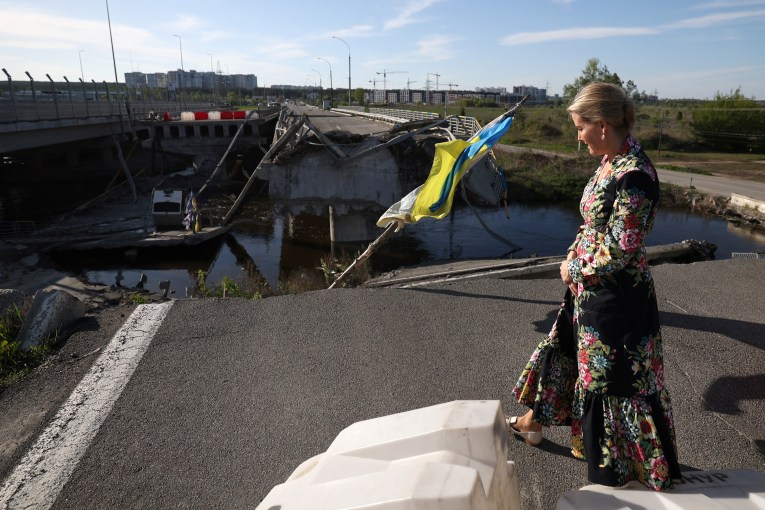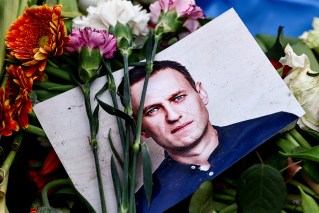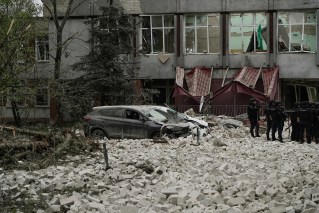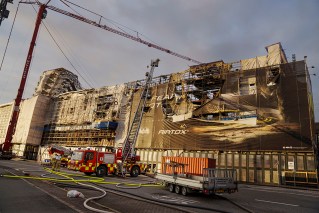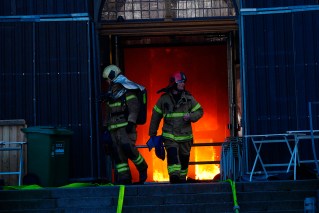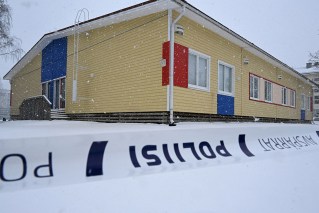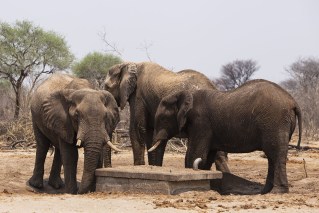Russia claims wins in ‘sham’ referendums
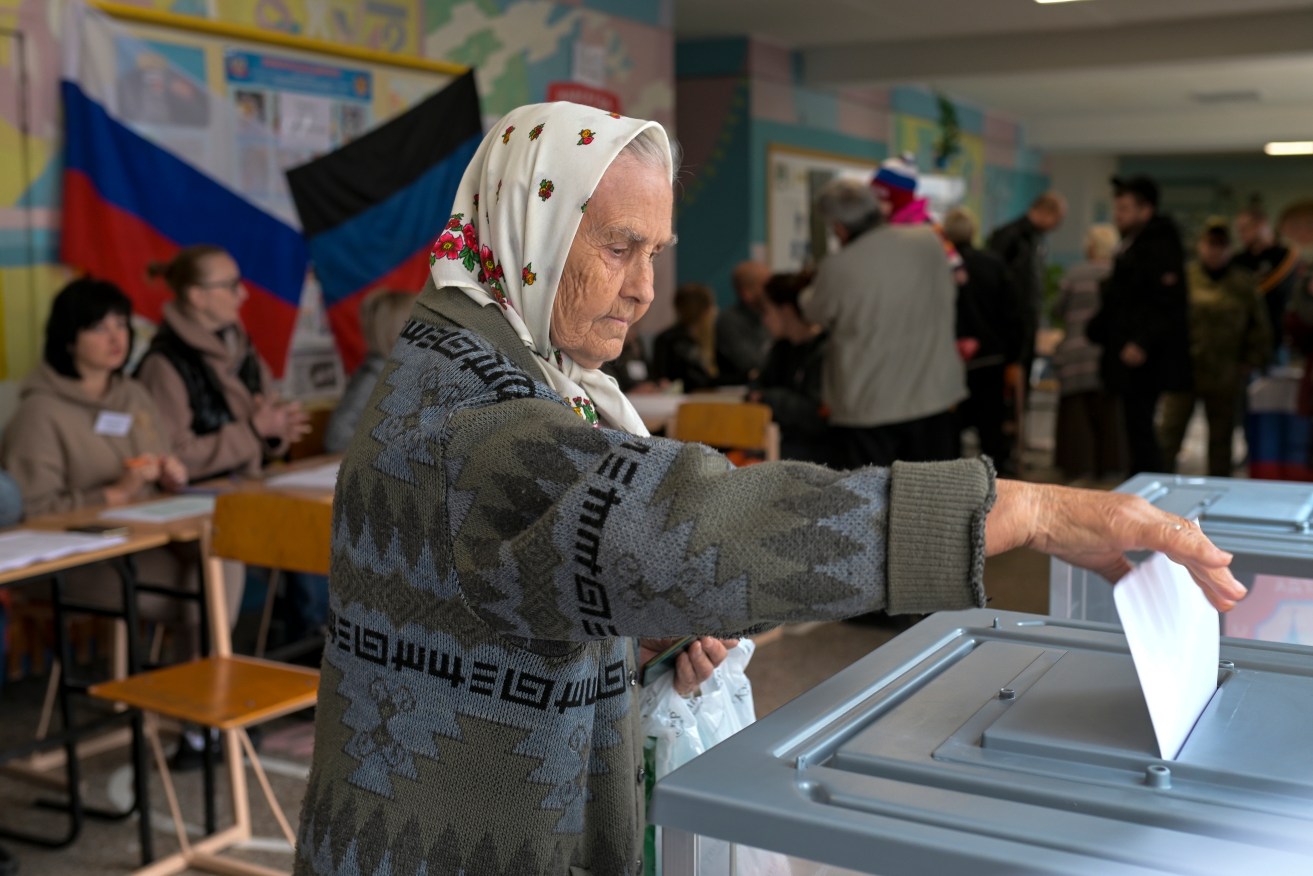
Accepting the referendum results "will open a pandora's box that we cannot close", the US says. Photo: AAP
Russian-installed officials in four occupied regions of Ukraine have reported huge majorities of votes in favour of joining Russia as the United States planned a UN resolution condemning referendums as shams and Moscow remained defiant.
Europe was investigating what Germany, Sweden and Denmark said on Tuesday were attacks that caused major leaks from two Russian energy pipelines. But it remained far from clear who might be behind the leaks.
Hastily arranged votes took place over five days in the eastern regions of Donetsk and Luhansk and in Zaporizhzhia and Kherson to the south that together make up about 15 per cent of Ukrainian territory.
Vote tallies from complete results on Tuesday in the four provinces ranged from 87 per cent to 99.2 per cent in favour of joining Russia, according to Russia-appointed officials. The head of the upper house of the Russian parliament said the chamber might consider the incorporation of the four regions into Russia on October 4.
Within the occupied territories, Russian-installed officials took ballot boxes from house to house in what Ukraine and the West said was an illegitimate, coercive exercise to create a legal pretext for Russia to annex the four regions.
“This farce in the occupied territories cannot even be called an imitation of a referendum,” Ukrainian President Volodymyr Zelensky said in his nightly video address on Tuesday.
The United States announced it would introduce a resolution at the United Nations Security Council calling on member states not to recognise any change to Ukraine and also obligate Russia to withdraw its troops.
“Russia’s sham referenda, if accepted, will open a pandora’s box that we cannot close,” envoy Linda Thomas-Greenfield said at a council meeting.
Russia has the ability to veto a resolution in the Security Council, but Thomas-Greenfield said that would prompt Washington to take the issue to the UN General Assembly.
“Any referenda held under these conditions, at the barrel of a gun, can never be remotely close to free or fair,” Britain’s deputy UN ambassador James Kariuki said.
Russia’s ambassador to the United Nations, Vassily Nebenzia, did not directly address the resolution but told the meeting that the referendums were conducted transparently and upholding electoral norms.
If Russia annexes the four Ukrainian regions, Russian President Vladimir Putin could then portray any Ukrainian attempt to recapture them as an attack on Russia itself.
He said last week he was willing to use nuclear weapons to defend the “territorial integrity” of Russia, and Putin ally Dmitry Medvedev, deputy chairman of Russia’s Security Council, issued a new nuclear warning on Tuesday to Ukraine and the West.
But Mykhailo Podolyak, an adviser to President Zelensky, told Reuters that Kyiv would not be swayed by nuclear threats or by the annexation votes, and would press on with plans to retake all territory occupied by invading Russian forces.
Diplomats say the nuclear sabre-rattling is an attempt by Moscow to scare the West into reducing its support for Kyiv.
For the first time Medvedev predicted the NATO military alliance would not directly enter the Ukraine war even if Moscow struck Ukraine with nuclear weapons.
Putin said on state TV the votes were designed to protect people from what he has called the persecution of ethnic Russians and Russian speakers by Ukraine, something Kyiv denies.
He earlier discussed with officials the mobilisation of farmers to fight in Ukraine, the latest step in a campaign he announced last week to support what Moscow calls its “special military operation” after this month’s battlefield reverses.
The mobilisation drive has sent thousands of Russians rushing to cross Russian borders into neighbouring countries.
Nearly 66,000 Russians entered the European Union, mostly via Finland and Estonia, between September 19 and 25, a 30 per cent increase from the previous week, the bloc’s border agency Frontex said.
None of the four regions is fully under Moscow’s control and there has been fighting along the entire front line, with Ukrainian forces reporting more advances since they routed Russian troops in a fifth province, Kharkiv, earlier this month.
– AAP
